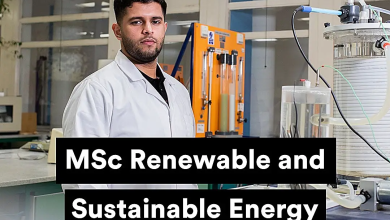Malaysian International Scholarship (MIS) 2023/2024: Your Gateway to World-Class Education in Malaysia
Scholarship of Education malesia.

Malaysian International Scholarship (MIS) 2023/2024: Your Gateway to World-Class Education in Malaysia
Introduction
The Malaysian International Scholarship (MIS) 2023/2024 is a prestigious scholarship program offered by the Malaysian government to international students. This golden opportunity allows talented individuals from around the world to pursue higher education in Malaysia’s renowned universities and institutions. In this blog post, we will delve into the details of the MIS program, its significance, eligibility criteria, and how to apply.

The Malaysian International Scholarship (MIS)
About MIS
The Malaysian International Scholarship (MIS) program is administered by the Malaysian Ministry of Education and is part of Malaysia’s commitment to providing quality education to international students. This scholarship offers opportunities for international students to study in Malaysia at the undergraduate, master’s, and doctoral levels.
Significance of MIS
The MIS program holds significant importance:
- International Collaboration: It fosters international collaboration by welcoming students from diverse backgrounds and promoting cultural exchange.
- Quality Education: Malaysia’s universities are renowned for their quality education and research opportunities.
- Global Perspective: Studying in Malaysia provides students with a global perspective, preparing them for a diverse and interconnected world.
- Contribution to Development: Upon returning to their home countries, MIS scholars can contribute to their nations’ development through their enhanced knowledge and skills.
Eligibility Criteria
To be eligible for the Malaysian International Scholarship (MIS) 2023/2024, applicants typically need to meet the following criteria, although specific requirements may vary:
- Academic Excellence: Demonstrated outstanding academic performance in previous studies.
- Language Proficiency: Proficiency in the English language (or Malay, if the course is taught in Malay) through standardized tests such as IELTS or TOEFL.
- Good Character: A record of good behavior and a clean criminal record.
- Medical Fitness: Applicants should be in good health.
- Age Limit: Typically, applicants should not be more than 40 years old for postgraduate studies and 45 years old for postdoctoral studies.
How to Apply
Applying for the Malaysian International Scholarship (MIS) 2023/2024 generally involves the following steps:
- Visit the Official MIS Website: Access the official MIS website or the website of the Malaysian Ministry of Education to find detailed information and application forms.
- Choose a Course and University: Browse through the available courses and universities in Malaysia and select the one that aligns with your academic and career goals.
- Prepare Required Documents: Gather the necessary documents, including academic transcripts, a research proposal (for research-based programs), and a personal statement.
- Online Application: Complete the online application form, providing accurate information and uploading the required documents.
- Submission: Carefully review your application before submitting it through the online portal.
- Interview (if applicable): Prepare for any interviews or additional evaluations that may be part of the selection process.
- Notification: Keep an eye on your email for notifications regarding the status of your application.
International Collaboration: Building Bridges for a Better World
International collaboration is the cornerstone of a globally interconnected world. It involves partnerships, cooperation, and shared efforts among countries, organizations, and individuals to address global challenges, foster cultural exchange, and drive progress. In this blog post, we will delve into the significance of international collaboration, its various forms, and the positive impact it has on various aspects of our society.
The Significance of International Collaboration
- Addressing Global Challenges: Many of the world’s most pressing issues, such as climate change, pandemics, and poverty, require collaborative efforts on a global scale.
- Cultural Exchange: International collaboration fosters cultural exchange, promoting understanding, tolerance, and appreciation of diverse perspectives.
- Economic Growth: Collaborative trade agreements and partnerships stimulate economic growth and job creation.
- Scientific Advancement: International collaboration in research and development accelerates scientific discoveries and technological innovations.
- Conflict Resolution: Diplomatic collaborations can help prevent and resolve conflicts, fostering peace and stability.
Forms of International Collaboration
- Diplomatic Collaboration: Countries collaborate diplomatically through treaties, agreements, and negotiations to address global issues and maintain peaceful relations.
- Trade and Economic Collaboration: International trade agreements, organizations like the World Trade Organization (WTO), and economic partnerships promote global commerce.
- Cultural Exchange Programs: Initiatives like student exchange programs, cultural festivals, and art exhibitions facilitate cultural understanding and appreciation.
- Scientific Research Collaboration: Scientists and researchers collaborate across borders on projects that advance knowledge and tackle global challenges.
- Non-Governmental Organizations (NGOs): NGOs collaborate internationally to provide humanitarian aid, promote human rights, and address global issues.
Positive Impact of International Collaboration
- Global Problem Solving: Collaborative efforts are more likely to yield effective solutions to complex global problems.
- Economic Benefits: Trade agreements and international partnerships boost economic growth and create jobs.
- Cultural Enrichment: Cultural exchange fosters tolerance, breaks down stereotypes, and enriches societies with diverse perspectives.
- Scientific Breakthroughs: International research collaborations drive scientific advancements and innovation.
- Peace and Stability: Diplomatic collaboration can prevent conflicts and promote peaceful resolution of disputes.
Examples of Successful International Collaboration
- The Paris Agreement: An international treaty aimed at addressing climate change through collaborative efforts to reduce greenhouse gas emissions.
- The United Nations: An organization that promotes international cooperation and addresses global challenges such as peacekeeping, humanitarian aid, and sustainable development.
- International Space Station (ISS): A collaborative project involving multiple countries to conduct scientific research in space.
- World Health Organization (WHO): An international organization that coordinates efforts to address global health issues, including pandemics.
- European Union (EU): A political and economic union of European countries that fosters economic collaboration and regional stability.
Quality Education: Empowering Minds, Shaping Futures
Quality education is not just a means of acquiring knowledge; it’s a powerful catalyst for personal growth, societal progress, and global development. It equips individuals with the skills, knowledge, and values needed to thrive in a complex and ever-changing world. In this blog post, we will explore the significance of quality education, its characteristics, and why it is crucial for individuals and societies.
The Significance of Quality Education
- Empowerment: Quality education empowers individuals to make informed decisions, pursue their aspirations, and contribute meaningfully to society.
- Economic Prosperity: A well-educated workforce drives economic growth, innovation, and competitiveness in the global market.
- Social Equity: Quality education reduces disparities and promotes social equity by ensuring equal opportunities for all, regardless of background.
- Global Citizenship: It nurtures global citizenship by fostering an understanding of global issues, cultures, and interconnectedness.
- Personal Development: Education enhances personal development by promoting critical thinking, problem-solving, and lifelong learning.
Characteristics of Quality Education
- Relevance: Quality education aligns with the needs of society and the job market, preparing students for real-world challenges.
- Skilled Educators: Quality education relies on skilled and passionate educators who inspire and guide students.
- Inclusivity: It provides equal access and opportunities for all, regardless of gender, race, or socioeconomic status.
- Student-Centered Learning: Quality education emphasizes student engagement, critical thinking, and hands-on learning experiences.
- Continuous Improvement: It is committed to ongoing improvement, adapting to evolving educational needs and innovations.
Why Quality Education Matters
- Economic Growth: Quality education drives economic growth by creating a skilled workforce and fostering innovation.
- Health and Well-being: It leads to improved health outcomes, as educated individuals tend to make healthier choices.
- Reduced Inequality: Quality education reduces disparities and promotes social mobility, reducing inequality.
- Global Competence: An educated population is better prepared to engage in global issues and contribute to global solutions.
- Social Cohesion: Quality education fosters social cohesion by promoting tolerance, understanding, and respect among diverse communities.
Challenges to Quality Education
- Access Barriers: Many individuals around the world still lack access to quality education due to financial, geographical, or cultural barriers.
- Teacher Shortages: Some regions face shortages of qualified teachers, affecting the quality of education provided.
- Technological Gaps: The digital divide can hinder access to quality online education and digital resources.
- Educational Inequality: Educational inequalities persist, particularly in underprivileged communities.
Contribution to Development: How Education and Empowerment Shape a Brighter Future
Contribution to development is not merely a philanthropic endeavor; it’s a powerful catalyst for positive change and progress. Empowering individuals with education and skills not only transforms their lives but also leads to the development of communities, nations, and the world at large. In this blog post, we will explore the significance of individuals’ contribution to development, its various forms, and the lasting impact it can have on societies.
The Significance of Contribution to Development
- Human Capital: Individuals are the building blocks of any society’s development. Their knowledge, skills, and talents form the foundation of progress.
- Economic Growth: Empowered individuals contribute to economic growth by driving innovation, entrepreneurship, and productivity.
- Social Well-being: Contribution to development enhances social well-being by addressing issues such as poverty, healthcare, and education.
- Community Resilience: Empowered individuals and communities are more resilient in the face of challenges, whether they be economic, environmental, or social.
- Global Impact: Local contributions to development can have global implications, such as addressing climate change or global health issues.
Forms of Contribution to Development
- Education: Providing access to quality education and vocational training empowers individuals with the skills and knowledge needed for personal and societal development.
- Entrepreneurship: Encouraging entrepreneurship and small business development fosters economic growth and job creation.
- Social Initiatives: Individuals and organizations often initiate social programs to address specific community needs, such as healthcare clinics, clean water projects, or literacy programs.
- Innovation and Research: Advancements in science, technology, and research contribute to solving complex global challenges.
- Advocacy and Activism: Advocates and activists play a critical role in driving policy changes and addressing social and environmental issues.
Positive Impact of Contribution to Development
- Economic Prosperity: Contribution to development leads to economic prosperity by creating jobs, increasing productivity, and expanding markets.
- Improved Quality of Life: Investments in healthcare, education, and social services enhance the quality of life for individuals and communities.
- Sustainable Development: Empowered individuals are more likely to engage in sustainable practices and contribute to environmentally conscious solutions.
- Reduced Inequality: Addressing social and economic disparities reduces inequality, fostering social cohesion and stability.
- Global Collaboration: Local contributions to development can have global implications and contribute to international cooperation.
Examples of Successful Contribution to Development
- Microfinance Programs: Initiatives like microfinance have empowered individuals in impoverished communities to start businesses and improve their economic well-being.
- Global Health Campaigns: International efforts to combat diseases like HIV/AIDS and malaria have had a significant impact on global health.
- Education Initiatives: Organizations providing access to quality education in underserved regions have empowered countless individuals to build better futures.
- Social Enterprises: Social enterprises combine business principles with social impact, addressing both economic and societal challenges.
- Clean Energy Innovations: Innovations in renewable energy and sustainable agriculture contribute to global efforts to combat climate change.
Conclusion
The Malaysian International Scholarship (MIS) 2023/2024 offers a gateway to world-class education in Malaysia, a country known for its cultural diversity and high-quality academic institutions. If you are an international student with a passion for learning and a track record of academic excellence, don’t miss this opportunity to broaden your horizons and acquire valuable skills and knowledge in a global setting. Apply for the MIS program, and embark on a journey of educational and cultural enrichment that can shape your future and contribute to the advancement of your home country.








Hello to every one, because I am truly keen of reading this web site’s post to be updated daily. It contains good stuff.